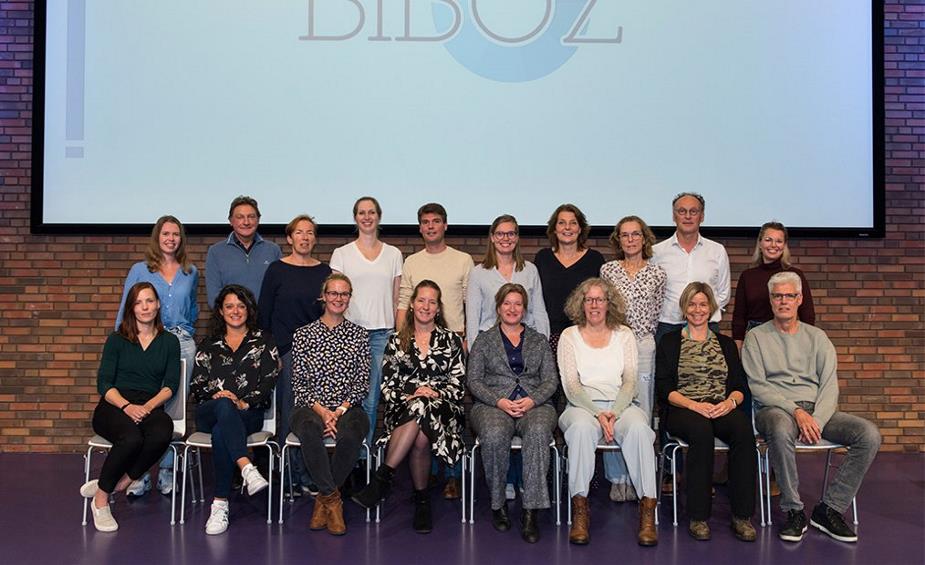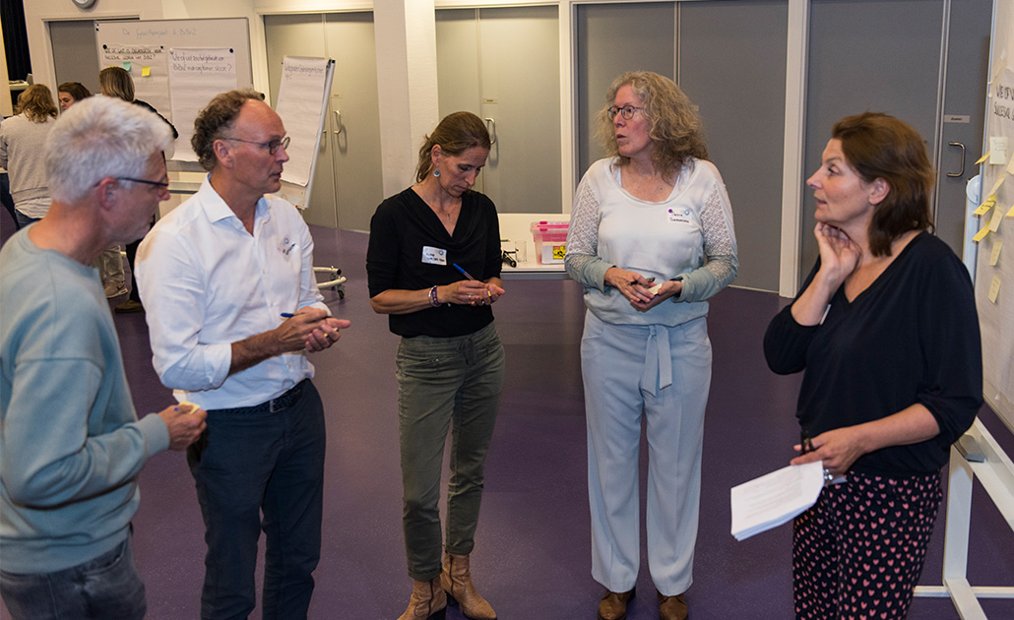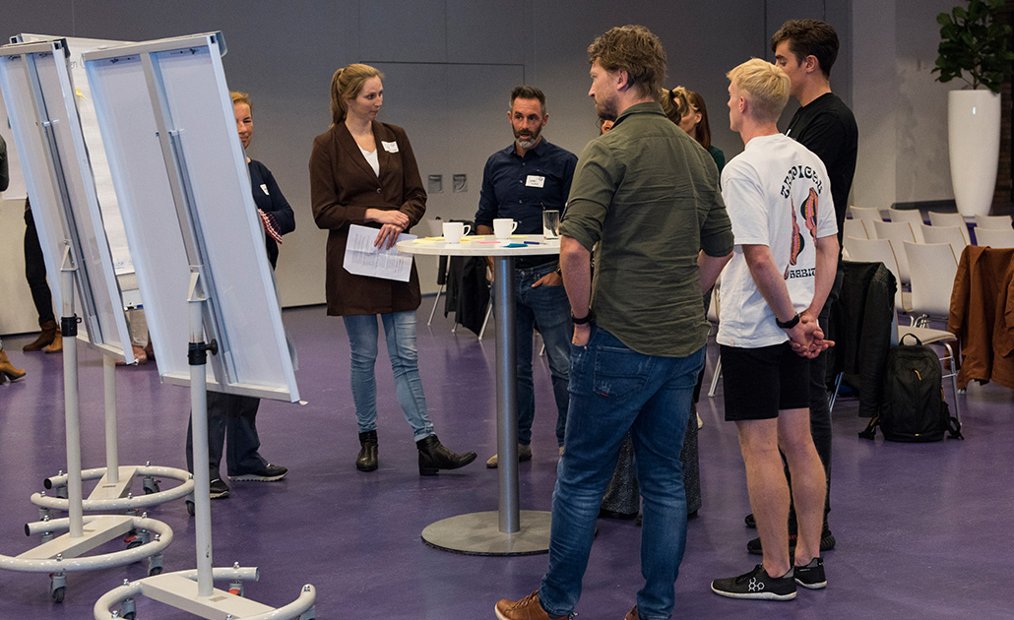Creative kick-off for the BiBoz Practice Situation
10 October 2022
During the opening, project leader Arlette Hesselink (University of Applied Sciences Leiden) walked the attendees through the start of the BiBoZ project in 2019 to the project's wish for the near future in 2024. Next...

During the opening, project leader Arlette Hesselink (University of Applied Sciences Leiden) walked the attendees through the start of the BiBoZ project in 2019 to the project's wish for the near future in 2024. Next, lecturer-researcher Myrenka Bik (University of Applied Sciences Leiden) gave an example of the method using a case study.
Sharing experiences
Primary care physiotherapists Sophie and Michelle shared their experiences in developing and applying the BiBoZ method in patients. Aline (a first-line physiotherapist and master's student in Physiotherapy and Science) then talked about the results of her research on communication within the BiBoZ method, in which she observed 12 physiotherapists while using the BiBoZ method in patients.

A wonderful challenge
Arlette told participants about the wonderful challenge that the project group will work on in the next two years with physiotherapists and patients. The goal is to develop an implementation strategy for applying the BiBoZ method in a way that fits well with everyday physiotherapy practices. During a brainstorming session, the diverse group of professionals gave their input in small groups and discussed ‘who or what can hinder or promote the implementation of BiBoZ’.
A variety of professionals
The kick-off was co-organised by Alice Schut, design researcher of the Healthy Lifestyle in a Supporting Environment research group at The Hague University of Applied Sciences. Alice devises creative techniques to solicit ideas from stakeholders and looks forward to providing insight into what is required to make the BiBoZ method work in real-life.
‘Physiotherapists and clients really have a voice in making the BiBoZ method applicable in their daily activities. We don't want to create it for them, but rather with them.’
Alice Schut
Professor Petra Siemonsma (Eigen Regie research group at Physiotherapy and Movement Care, University of Applied Sciences Leiden) has been involved in BiBoZ from the beginning. According to Petra, BiBoZ is a unique project because by using this methodology, physiotherapists and clients really have a different dialogue about the underlying factors that can contribute to healthy movement, such as the physical and social environment and the person's physical and psychological capacity. It also helps the physiotherapist and patient to make decisions together about promising exercise activities for the patient.
One of the partners in the consortium is Zorg1. In cooperation with physiotherapy practices and healthcare insurers, Zorg1 promotes innovative interventions that help people remain symptom-free longer. Lotte de Jong of Zorg1 hopes that in two years there will be a broader support base within physiotherapy to use initiatives such as the BiBoZ project to better assist clients.
‘The client plays a key role in BiBoZ and we look at what the client needs and what helps them to start and keep moving.’
Lotte de Jong
Students
Many students are involved in the BiBoZ project. Jelle de Wit (from the Physiotherapy degree programme at the University of Applied Sciences Leiden) is conducting research within the BiBoZ project, with three fellow students. They will develop clear descriptions and good examples for some so-called behaviour-changing techniques to make it easier for physiotherapists to apply the BiBoZ method.
